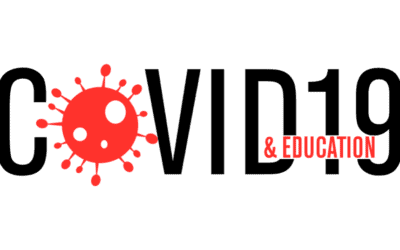Noah Ullman just forwarded me this story in the The Chronicle of Higher Education titled Professor encourages students to pass notes during class via twitter. It is amazing to me that this merited being called news. If you have been following this blog you know that this is something I have been playing with for a while (in fact based on a suggestion made by Noah). For the record, here are some links to what I had written: Microblogging in the classroom & Microblogging in the classroom II. In fact one of my students even tried it out in an undergraduate course he was teaching that semester.
I see this as a way of fruitfully utilizing the fact that all my students bring laptops to the classroom (something I have written about here and here)… seems a better solution than having them just check email or update their facebook status 🙂
It seems to me that the story didn’t speak to one critical aspect of micro-blogging, how is the twitter feed brought back into the classroom discussion. The problem is that the microblogging tends to exist in a separate “space” from what the class is doing – and coming up with strategies for integrating these two spaces (the face to face AND the microblogging) is what is key. Finding the right balance is is something we struggled with in our experiments. One thing we learned, no big surprise here, is that context matters. A tool that works one way in a doctoral seminar with a dozen or so participants works very differently in an undergraduate class with twice that number of students.
Figuring out the parameters within which these new technologies and tools can be used is what we need to pay attention to. More often than not the discussion is restricted to the “tool” not its pedagogic application. Nowhere is this more apparent than in the comments that follow the Chronicle article. Take a look at them, they tend to follow the time honored rules of talking at cross purposes, with some of the silly comments that, sadly, characterize internet discourse.



you always have your own unique view on things! Congratz!!!
I asked my self the same question….whats the big deal? Last summer 2008, Jim Reineke (http://jreineke.wordpress.com/) and I taught a masters course in educational technology and used twitter as one of several technologies to help in teaching the course and doing assignments.
The University of Phoenix online announced about three weeks ago that they may have courses that are taught entirely using twitter.
I think someone on the order like Al Gore is needed to publicize TPACK. Someone outside of academia with some star power (Bill Gates, etc.) because within academia one would look like a cheerleader and probably lose credibility. This is necessary because people would become familiar with TPACK and understand that any technology can be a learning technology depending how it is creatively re-purposed or designed considering pedagogy and content within a particular context.
Thanks Matt for your comments. A couple of other postings allude to similar ideas as well (see the guest posting on Nashworld, as well as the previous one on Translating French Lieutenant’s Woman for some more thoughts on these complex issues).
Well said, Punya. I previously cringed when I read about topics such as “Top 10 ways to use cell phones in the classroom” or “What do you think about using XYZ application in education?” Your TPACK framework, as we’ve discussed several times previously, has provided me with a framework to think about connecting technology tools with teaching. In response to the above-mentioned questions, my response now tends to be something like “who are your students? What concept are you teaching? What pedagogy might enable you be better teach that concept to your intended audience?”…and then “Does this particularly technology tool enable you to better teach that concept using the identified pedagogy?” Finding the middle of the Venn diagram takes knowledge in all three areas (and much thought/time as well!). As always, thanks for your insightful post.